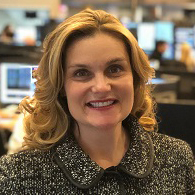RBC’s Sustainable Finance Group works closely with a growing number of clients globally who view Environmental, Social and Governance (ESG) as important factors in both their corporate strategy and their investment decision-making process.
Here are five things you should know about the initiative and the critical role sustainable finance has to play in our industry.
1. What is sustainable finance?
There are many definitions – some investors see it simply as intelligent longer-term investing, while others look specifically at how companies respond to factors such as digital risk management, business ethics, climate change and human capital.
At RBC, we are adopting a broad definition which calls for assimilating environmental and social factors as a means of promoting sustainable economic growth and the long-term stability of the financial system.
2. Why is it important?
Globally, more than 2,000 investors (totaling $82 trillion in AUM - a 10-fold increase since 2006) have signed onto the UNPRI, which requires a public commitment to responsible investing. Considering this alongside RBC Global Asset Management’s recent Responsible Investing Survey that found 72% of respondents use ESG principles as part of their investment approach and it’s evident that sustainable investing has gone mainstream.
Here at RBC, many of our institutional and corporate clients already incorporate ESG factors into their investment and strategic business decisions. As investor preferences and corporate priorities evolve, we as an investment bank have a role to play in the advice we provide and the innovative solutions that we bring to investors.
3. What is the role of RBC Capital Markets?
Within sustainable finance, investors often cite a disconnect between the ESG information they get from companies and the information they’d like to receive. In fact, a recent study by PWC showed that 92% of investors say companies are not disclosing ESG data in a way that makes comparisons easy, while 60% of companies feel their disclosure is sufficient.
Our new Sustainable Finance Group aims to bridge this divide by helping our corporate clients understand ESG perspectives and providing context to our institutional client base.
4. Why now?
Sustainable finance has become a hot topic. In fact, 2018 was a noteworthy year in terms of how perceptions around sustainable investing have changed. For example, the RBC GAM survey also showed that 90% of respondents believe that ESG-integrated portfolios are likely to perform as well or better than non-ESG integrated portfolios.
BlackRock research demonstrates why it believes it’s feasible to create sustainable portfolios that do not compromise return goals and may even enhance risk-adjusted returns in the long run. Indeed in 2018, core ESG indices outperformed their beta index counterparts (e.g. MSCI World ESG Leaders outperformed the MSCI World by 89 bps).
5. What will the Sustainable Finance Group do?
Evolving data and analytics capabilities are shifting the ESG-data landscape from what was previously purely qualitative to a more quantitative field. This is leading to a growing usage of systematic, objective and financially relevant approaches to analyzing ESG factors at an individual company level.
The new Sustainable Finance Group will lead the integration of sustainable and ESG factors into our core businesses globally by providing advice and developing solutions for our corporate and institutional clients. We will build out our internal capabilities by working with third-party data providers and operate as a centre of excellence, leveraging these capabilities across internal partners and connecting a variety of initiatives.
